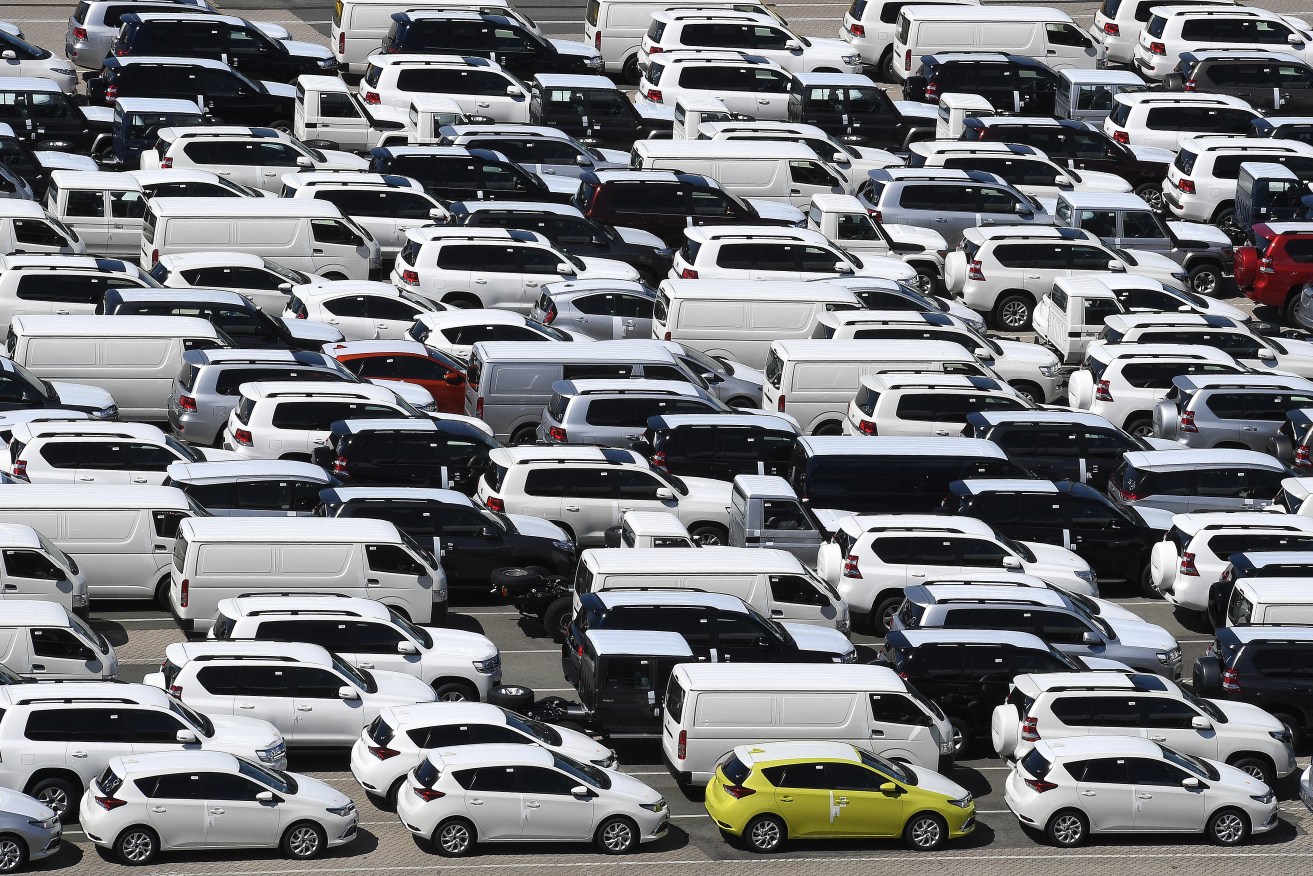Car manufacturers pull up short on emission estimates

Automakers are still failing to accurately report their greenhouse gas emissions, a new analysis warns, and some brands fall well short of the target. Photo: AAP
Some of the world’s biggest automakers are still “grossly under-reporting” greenhouse gas emissions, according to a new report, despite improvements in their estimates.
The research, undertaken by consultancy firms Carbon Tracker and Nomisma, was released on Wednesday and found car manufacturers ranked among the world’s highest carbon producers and needed to improve the way they declared their environmental impacts.
The report comes after Toyota suspended shipments of 10 diesel vehicles following a probe into the accuracy of their emissions testing, and just months after the first “real-world” car emission tests began in Australia.
Carbon Tracker and Nomisma investigated nine car manufacturers as part of their study, including Toyota, Volkswagen, Hyundai and Ford, and used independent testing, sales data, and the companies’ sustainability and financial reports to calculate their emissions.
The analysis found the difference between carbon emissions the automakers declared and the researchers’ estimates averaged 27 per cent.
But the so-called “carbon gap” was smaller than last year when the researchers put it at 46 per cent.
The report found both Ford and Stellantis, which produces cars under the brands Jeep, Alfa Romeo and Fiat, reported their emissions accurately, and some companies narrowed their carbon reporting gaps, including Toyota, BMW and VW.
The report found wide and “inexplicable” differences in emission estimates from Honda and Hyundai, which researchers found difficult to pin down.
Carbon Tracker senior analyst Ben Scott said the ongoing discrepancies proved companies needed to do better and the industry would benefit from stricter regulations.
“Emissions from automakers need to be monitored correctly and accurately to ensure the decarbonisation of the automotive sector,” Mr Scott said.
“Automakers continue to to be high emitters of carbon dioxide, comparable to the emissions of developed nations.”
The 35-page report found some automakers produced greater emissions than oil companies, and battery electric vehicles could provide a way for car makers to reduce carbon emissions, even if battery production or charging used non-renewable resources.
The analysis comes one day after Toyota revealed it had suspended shipments of some of its diesel vehicles following the discovery of “potential irregularities” in emissions testing.
Three affected diesel engines were used in 10 models worldwide, including some Land Cruiser Prado, HiLux and HiAce vehicles, and the company said it would provide details about what happened during testing and promptly proceed with appropriate measures, including conducting testing in the presence of witnesses, if appropriate.
The federal government is also testing the accuracy of vehicle emissions after launching a $14 million program last year, conducted by the Australian Automobile Association, to test the emissions of 200 petrol, diesel and electric vehicles in real-world scenarios.
Early results from the program showed five out of nine vehicles tested used more petrol than disclosed, with two exceeding lab estimates by 13 per cent.
– AAP








